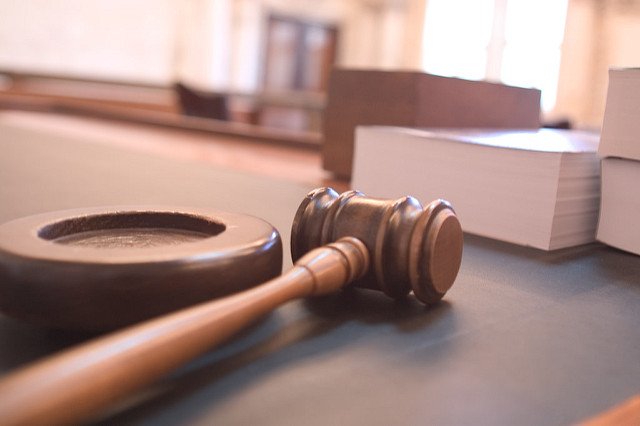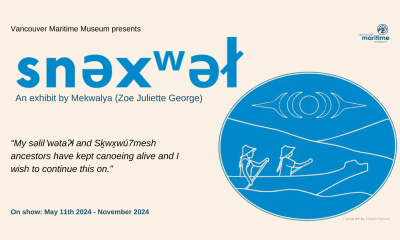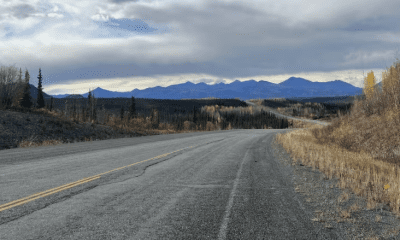Canada News
Experts renew call for challenge changes, jury lists with more Indigenous names

Some legal experts and Indigenous advocates say the trial of a Saskatchewan farmer accused of murdering a Cree man highlights a long-standing need for more diversity on juries. (Photo by Joe Gratz/Flickr, Public Domain)
Some legal experts and Indigenous advocates say the trial of a Saskatchewan farmer accused of murdering a Cree man highlights a long-standing need for more diversity on juries.
A jury has acquitted Gerald Stanley, who testified that he accidentally shot Colten Boushie when the young man and four others drove onto Stanley’s farm near Biggar, Sask.
Boushie’s family voiced frustration after no visibly Indigenous jurors were selected at the beginning of the trial and after the verdict was returned Friday night. Boushie’s uncle Alvin Baptiste said the verdict from “a white jury” shows how First Nations people are treated in the justice system.
Several Indigenous people were rejected by the defence during jury selection with what are called peremptory challenges.
“Peremptory challenges just are really asking lawyers to rely on their stereotypes about the person they see,” said Jonathan Rudin with Aboriginal Legal Services in Toronto.
“The message that it sends is just awful … In this case, that Indigenous people cannot be trusted to serve as a juror.”
During jury selection, the Crown and defence are each given a set number of peremptory challenges and don’t have to give reasons for rejecting a potential juror. Lawyers can also “challenge for cause,” which involves a judge asking potential jurors pre-approved questions, including whether they may have a bias in the case.
Rudin said it’s time for peremptory challenges to go.
“You never see white people being excluded from the jury because they’re white.”
At the beginning of Stanley’s trial, the Federation of Sovereign Indigenous Nations called on the federal government to make it mandatory for juries to include First Nations people.
Federal Justice Minister Jody Wilson-Raybould responded by saying she’s concerned about the under-representation of Indigenous jurors in several provinces. But she added that any changes to the justice system would require careful study and consideration.
In 1991, the Manitoba Aboriginal Justice Inquiry report detailed how Indigenous people were historically denied the right to sit on juries since names were drawn from voting lists. Status Indians were not considered citizens or allowed to vote.
Over the last few decades, there has been little improvement, with lists still lacking names from Indigenous communities.
The report called Manitoba’s jury system a “glaring example of systemic discrimination” and called for peremptory challenges to be eliminated.
Murray Sinclair, Manitoba’s first Indigenous judge and now a senator, co-chaired the inquiry. He tweeted about the Stanley trial last week.
“Without Indigenous people on the jury, how will they understand?” he wrote.
His son Niigaan Sinclair, a professor of native studies at the University of Manitoba, said Indigenous jurors bring history and experience into a room. He suggests all jurors undergo some sort of educational training before a trial starts.
“The situation in Saskatchewan demands competency in understanding the relationships between Indigenous and non-Indigenous peoples, and I would say that, on the whole, Canadians are not adequately prepared for the complexities of the past 150 years,” he said.
“Understanding the Indian Act, understanding how Canada has been built off the exploitation of Indigenous peoples and resources … all of that goes into the (killing) of Colten Boushie.”
Toronto lawyer Jessica Orkin said problems with Canada’s jury system can’t be solved with one fix.
She represented an Aboriginal man, Clifford Kokopenace, in his battle over jury fairness before the Supreme Court in 2015. Kokopenace was convicted of manslaughter but argued the verdict wasn’t by a jury of his peers.
The Appeal Court ordered a retrial but the Supreme Court ruled the province had done an adequate job of trying to get Indigenous people on the list of potential jurors.
Each province is responsible for sending notices for jury duty. In Ontario, Orkin said, it’s done using names on municipal and property rolls. Other provinces use driver’s licences and health records.
It’s a problem when people don’t own property or drive.
Instead of abolishing peremptory challenges, Orkin suggests change needs to start with getting more Indigenous people on voting lists.
An inquiry report by former Supreme Court justice Frank Iacobucci in 2013 recommended several changes to get more Indigenous people on juries in Ontario. So far, nothing has been implemented, Orkin said.
She hopes that Wilson-Raybould, Canada’s first Indigenous justice minister, may finally be able to bring about some change.
“This is a really challenging issue and unfortunately one that has been left to fester for an extremely long time.”





















